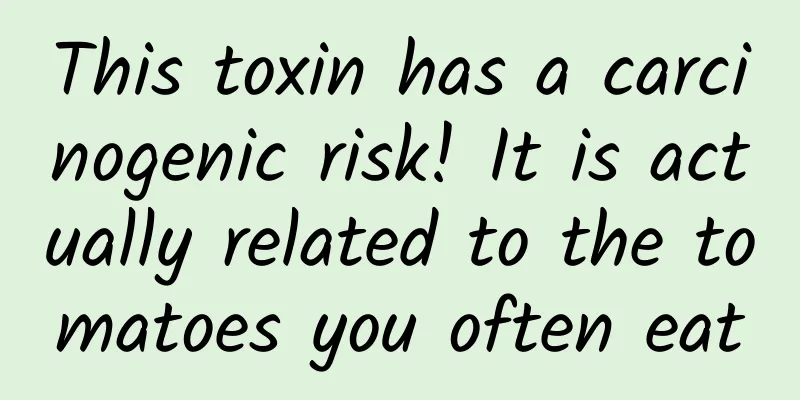The late spring cold has gone and the south wind has returned. What should we do with such bad weather?

|
In early spring, the weather in many parts of the country is hot and cold, and it is inevitable that there will be some abnormalities in the body - itching, blisters, and even a scar... The professional doctor diagnosed that this was "eczema". Oh, who can understand this wet trouble? If you like to walk barefoot at home and drink cold drinks outside, then... even if you don't live in a cold and humid place, eczema will hardly let you go. Eczema is a common epidermal inflammation, which is divided into three stages: acute, subacute and chronic according to the manifestation of skin lesions. In the acute phase, the skin lesions initially appear as dense millet-sized papules, papulovesicles or small blisters with a flushed base, which gradually merge into flakes and will cause exudation and erosion when scratched. In the subacute stage, the skin lesions are mainly small papules, scabs and scales, with only a small amount of papulovesicles and erosions. In the chronic stage, the skin of the affected area is thickened and infiltrated, brown-red or pigmented, and may form scabs due to scratching. Regardless of the stage, severe itching will accompany the appearance of eczema. The typical symptoms of eczema are itching and polymorphic skin lesions. In the early stages of eczema, the affected area will appear as patches of red spots, dense or scattered small papules, or blisters that are invisible to the naked eye. During the recovery period of eczema, the itching, erosion, redness and swelling of the affected area will be alleviated, the pustules and blisters will disappear, and scabs will appear. Eczema is also divided into localized eczema and generalized eczema. Localized eczema only occurs in specific parts, such as hands, face, scalp, etc.; generalized eczema will spread or disseminate to multiple parts of the body. Immune imbalance, allergic factors, temperature and humidity intolerance, and protein allergy can increase the incidence of eczema. Allergic factors are the most direct cause of eczema, which may be caused by external allergens or by genetic allergic constitution. 3. The habit of using hot water for bathing and the lack of hygiene will make eczema worse. Frequent recurrence or aggravation in winter and spring is called seasonal eczema. Clinically, seasonal eczema is not a disease, but its seasonal characteristics are more prominent. 4 In my country, the incidence of eczema in children is about 10% to 20%, and in adults it is about 1% to 3%. Eczema is not a simple rash, it may also be the beginning of an allergic process. Some patients may inherit special adaptive diseases such as allergic rhinitis, allergic asthma, and allergic conjunctivitis. The best way to treat eczema is to use eczema ointment, Wuji ointment, or calamine lotion. If the itching is severe, you can take loratadine orally. Pay attention to local hygiene, avoid scratching with your hands, and try not to eat spicy, irritating, or greasy foods. Produced by: Dongdongmeow WeChat ID: Dongdongmeow (ID: dongdongmeow) Video account: Dongdongmiao, Weibo: @Dongdongmiao Science Popularization Source: Dongdongmiao |
>>: Can drinking tea really help you get rid of fat? Let's take a look at the scientific explanation
Recommend
Changsha tea tasting, Hi Select Club, where is the most reliable place to drink tea
Recommended 185-6916-1745 Wei QQ synchronization,...
How to mine free resources from App stores at low cost
The content of this article is based on a speech I...
How to play information flow advertising? It took 300,000 yuan to summarize the experience!
Industry Overview: According to incomplete statis...
A guide to planning online and offline events!
Everyone is familiar with event planning , but th...
5 Top Traffic Video Marketing and YouTube Video Production Tutorials
For many foreign trade people, video marketing is...
98-year-old housewife awarded honorary doctorate for discovery that causes physicists to rethink symmetry
Recently, the University of Bristol in the UK awa...
2020 New Year Marketing: How Brands Can Take Advantage of March 8th Women's Day
Due to the impact of the epidemic, many people ar...
Programmer Skill Hierarchy Model
[[129301]] Programming skill level Programming sk...
When launching rockets, why are liquid oxygen and methane more advantageous?
Written by reporter Duan Ran Editor/Chen Yongjie ...
Essential for overseas promotion: What are the global advertising channels?
On March 20, AppsFlyer released the "Eighth ...
Private lessons at the Men's Love Academy
A new leader of high-end private lessons, with 5 ...
How do you make and receive satellite calls? Tiantong-1 satellite comes to your rescue
Tiantong satellite phone can be used as a common ...
Electric Technology Car News: With its low price and stunning appearance, can the SWM X3 grab a place in the fiercely competitive SUV market?
When buying a car, modern people not only have mo...
What exactly is the human hemipulmonary virus that has become a hot topic, and how can we deal with it?
Recently, the topic #国产发生人体块病毒菌# suddenly became ...









